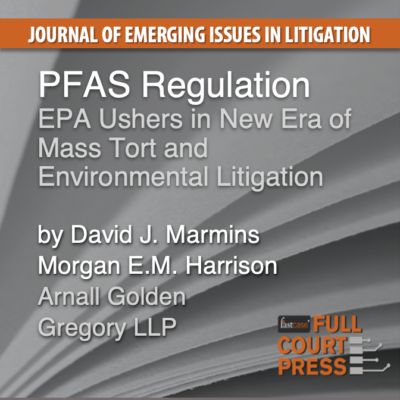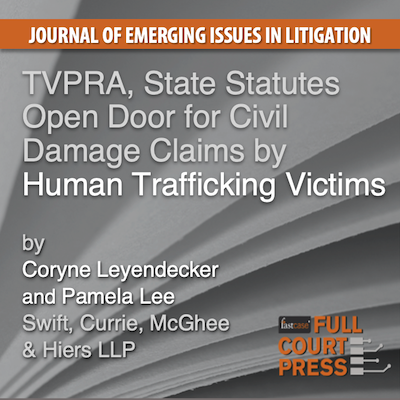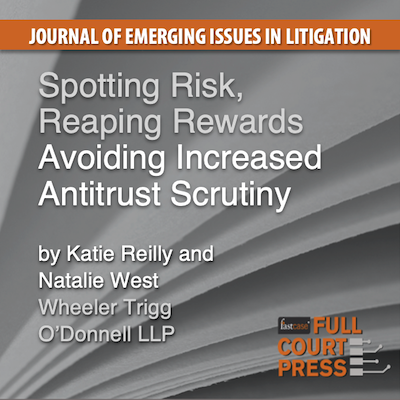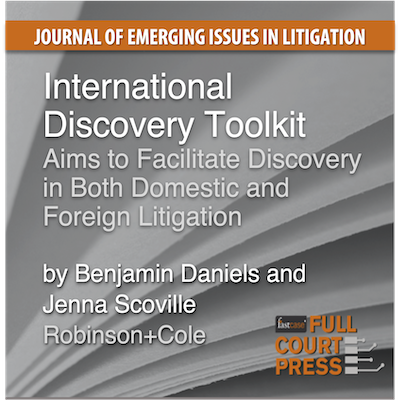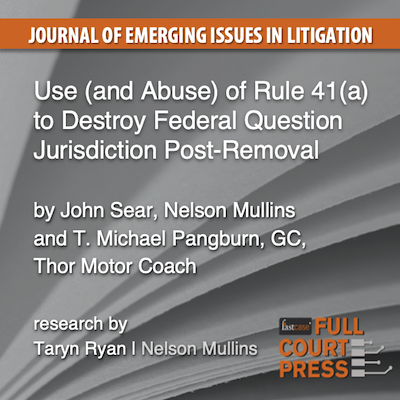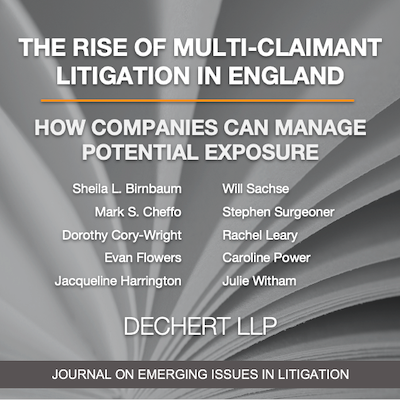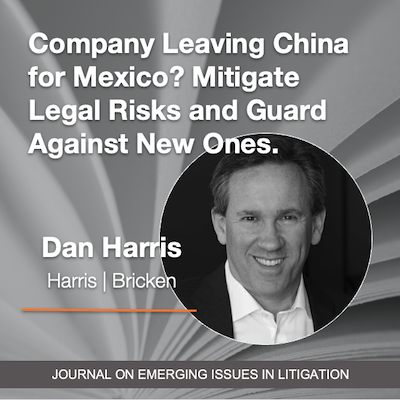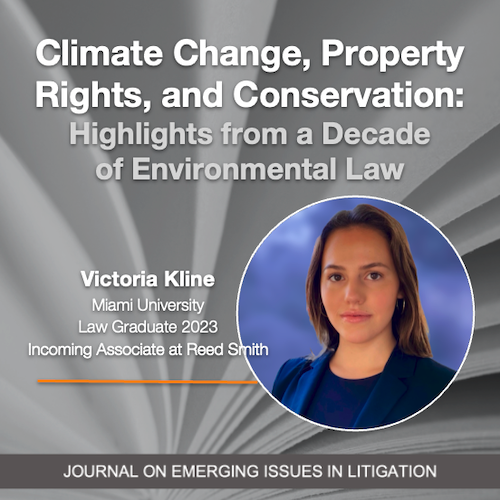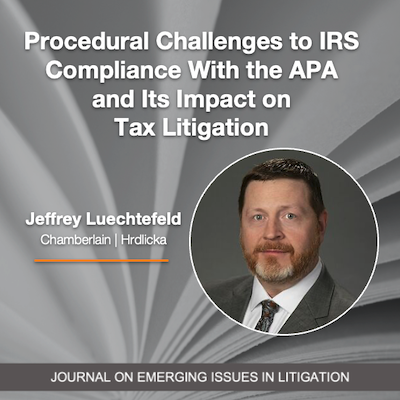Journal on Emerging Issues in Litigation
Legal Analysis & Commentary
This quarterly litigation journal offers practical and insightful commentary on a variety of topics — new legal theories or areas of litigation — that plaintiff attorneys, defense counsel, corporations, risk professionals and others will want to be aware of. A typical issue comprises several analytical pieces by practicing attorneys and subject matter experts. Articles often form the basis of podcast episodes and webinars. This quarterly print and digital publication is published by vLex Fastcase Full Court Press. Inquiries: Editor@LitigationConferences.com.




